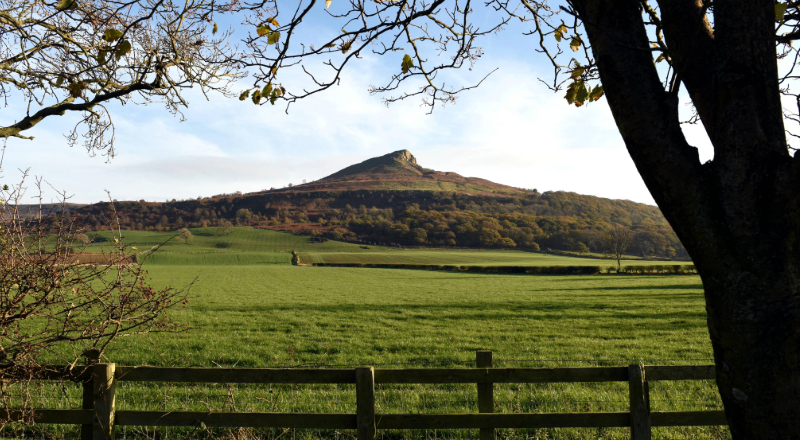Teesside University to create ‘green corridor’ in the North East
Teesside, Durham and Newcastle Universities, the National Trust, local authorities and community organisations are working together to create three green corridors in the region.

The pioneering £3m project is one of the first of its kind in the country and will transform 35 miles of urban, suburban and rural spaces in South Tees, Durham and Gateshead.
The aim behind green corridors is to connect city and town dwellers with nature, history and culture, as well as increasing biodiversity and improving wellbeing.
The three North East green corridors are:
• Tees to Topping – a green corridor connecting Middlesbrough and the Tees Estuary to the North York Moors National Park and Roseberry Topping. Threading through the heart of urban Middlesbrough to open moorland, it will better connect the region’s natural and cultural assets such as Ormesby Beck, Stewart Park, Ormesby Hall, Flatts Lane Country Park and Guisborough Forest.
• The Durham route – a stretch along the River Wear, connecting the World Heritage Site city centre of Durham and Crook Hall Gardens with over 1,000 hectares of green and blue space. Rich natural sites sit in the corridor, including Brasside Ponds, Low Newton Junction Nature Reserve and heritage sites such as Finchale Priory and Kepier Hospital. It would link to existing long-distance walks in the area – Camino Ingles and Weardale Way.
• The Tyne Derwent Way – which opened last year. The route links attractions along the Tyne and Derwent rivers, including Gateshead Riverside Park, Dunston Staiths, the Metro Centre, the Land of Oak and Iron Heritage Centre, Nine Arches Viaduct, Thornley Woodland Centre and Gibside.
Collectively working together under the umbrella Green Corridors North East, the three routes will develop new co-created arts and humanities-led research practices that will contribute significantly to the transformative regeneration of green corridors in the UK and beyond.
Arts and humanities-led researchers will engage with teams drawn from local organisations and groups to share and expand each other’s knowledge, understanding and skills as they conceive and conduct more than 25 projects together.
These initiatives will aim to create new appreciations of heritage, history, culture and nature across South Tees, Durham and Gateshead, helping to create accessible, connected, sustainable and valued places where nature and communities can thrive together.
The research will focus primarily on four themes: heritage and history; culture and creativity; nature and natural heritage; and active evaluation for learning.
The three routes will benefit the health and wellbeing of communities and users of urban, suburban and rural green spaces by supporting and nurturing their creative engagement with one another, the sites and their heritage.
These green corridors will have a transformative impact and strengthen the connection between our communities and the natural, historical and cultural assets this region has to offer.
The corridors will also nurture new kinds of environmental and cultural stewardship, developing new knowledge and narratives of place based on shared understandings of how communities use and enjoy green spaces along the region’s river valleys.
Professor Diana Feliciano, Professor Sarah Perks, Dr Laura Sillars and Dr Paul Stewart of Teesside University’s Institute for Collective Place Leadership are part of the Green Corridors North East academic team.
Professor Perks said: “We are proud to be a part of this exciting project.
“These green corridors will have a transformative impact and strengthen the connection between our communities and the natural, historical and cultural assets this region has to offer.”
The project is one of three funded by the Arts and Humanities Research Council’s Mission Awards, which is piloting a new approach that emphasises the team over leadership by an individual researcher.
Arts and Humanities Research Council Executive Chair Professor Christopher Smith said: “The Mission Awards take an innovative approach to supporting research. The goal of the award is to encourage and trial radically team-based research behaviours.
“The projects, on highly topical and pragmatic issues, will need to succeed not just through the quality of their research, but by the example they set of how to work as teams.
“The interest in this award shows that arts and humanities researchers are embracing new ways of working and setting their own rules for teamwork. AHRC is proud to support the transformations in the sector and I am sure that lessons will be learnt that apply far more widely than the disciplines supported here.”
The National Trust is committed to an ambitious programme to establish 20 green corridors across England, Northern Ireland and Wales by 2030.
Helen Moir, Senior Urban Programme Manager (North East) for the National Trust, said: "As part of the AHRC Mission research project, our North East Urban Team are excited to take the first steps towards working in such an innovative partnership that will bring together research, multi-discipline stakeholders and community voices to deliver positive change for three green corridors in South Tees, Durham City and Gateshead.
“The AHRC Mission aligns perfectly with our new National Trust strategy ‘People & Nature Thriving’, particularly in our ambition to end unequal access to nature, beauty and history.”
 Teesside University to create ‘green corridor’ in the North
...
Teesside University to create ‘green corridor’ in the North
... Unitemps Teesside partners with local Outwood Family of
...
Unitemps Teesside partners with local Outwood Family of
... UNEE welcomes government investment in region’s innovation
...
UNEE welcomes government investment in region’s innovation
...